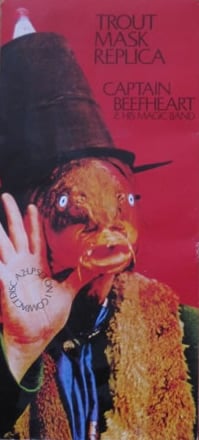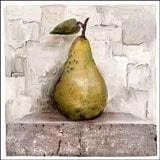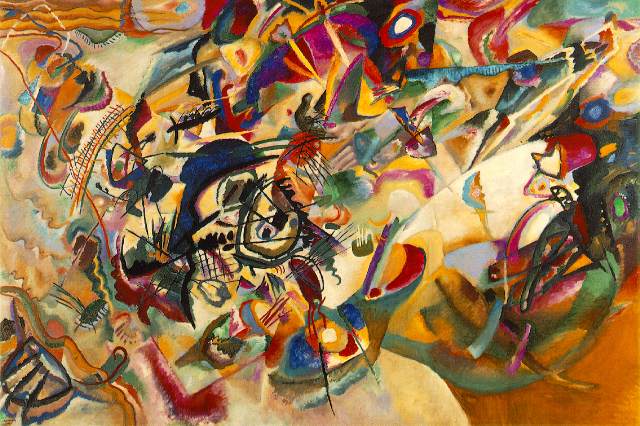/PAlogo_v2.gif) |
|
Post Reply 
|
Page 12> |
| Author | |||||
condor 
Forum Senior Member 

Joined: May 24 2005 Location: Norwich Status: Offline Points: 1069 |
 Topic: Genre placements that nobody else can understand Topic: Genre placements that nobody else can understandPosted: January 18 2018 at 02:29 |
||||
|
...King Crimson as classical music
Because songs like Starless are the epitome of classical music's philosophy. Edited by condor - January 18 2018 at 02:30 |
|||||
 |
|||||
Blacksword 
Prog Reviewer 

Joined: June 22 2004 Location: England Status: Offline Points: 16130 |
 Posted: January 18 2018 at 03:14 Posted: January 18 2018 at 03:14 |
||||
|
Is that your genre placement for KC, or someone elses??
It's wrong anyway. They are a rock band. No more complicated than that. Also not sure what is meant by 'the epitome of classical music's philosophy' Classical music is as broad a church as progressive rock. If not more so. |
|||||
|
Ultimately bored by endless ecstasy!
|
|||||
 |
|||||
Frenetic Zetetic 
Forum Senior Member 

Joined: December 09 2017 Location: Now Status: Offline Points: 9233 |
 Posted: January 18 2018 at 04:02 Posted: January 18 2018 at 04:02 |
||||
|
The only thing I'm having a hard time understanding is this thread...?
|
|||||
|
"I am so prog, I listen to concept albums on shuffle." -KMac2021 |
|||||
 |
|||||
Guldbamsen 
Special Collaborator 

Retired Admin Joined: January 22 2009 Location: Magic Theatre Status: Offline Points: 23098 |
 Posted: January 18 2018 at 04:21 Posted: January 18 2018 at 04:21 |
||||
|
Condor: I'm sorry if I sounded a little testy in your other one, but man these sort of threads are a big part of why.
Maybe there is something more behind your questions and threads but the way they're presented to the forum comes off as these pseudo-intellectual adolescent brain farts that haven't been thought through. Take it from another man who more than often has a tendency to speak before he thinks: try to organise your thoughts on whatever subject it is you want to talk about before you merely post a strange one-liner question. On the other hand: if this is how you roll and prefer to keep it minimalist and only really start threads without any concern about where it ends or what people say, then I highly recommend you use the Just For Fun section instead. |
|||||
|
“The Guide says there is an art to flying or rather a knack. The knack lies in learning how to throw yourself at the ground and miss.”
- Douglas Adams |
|||||
 |
|||||
chopper 
Special Collaborator 

Honorary Collaborator Joined: July 13 2005 Location: Essex, UK Status: Offline Points: 19943 |
 Posted: January 18 2018 at 05:05 Posted: January 18 2018 at 05:05 |
||||
Please explain why, if you ever look at this thread again.
|
|||||
 |
|||||
someone_else 
Forum Senior Member 

VIP Member Joined: May 02 2008 Location: Going Bananas Status: Offline Points: 23995 |
 Posted: January 18 2018 at 05:26 Posted: January 18 2018 at 05:26 |
||||
|
Prelude: Song of the Gulls has more to do with classical music than Starless.
|
|||||

|
|||||
 |
|||||
condor 
Forum Senior Member 

Joined: May 24 2005 Location: Norwich Status: Offline Points: 1069 |
 Posted: January 18 2018 at 06:06 Posted: January 18 2018 at 06:06 |
||||
From Eric Tamm's book on Fripp: “Starless” as a whole can be seen as a carefully graded swell of energy: by the end of the instrumental crescendo, things have reached such a desperate peak that you think there’s nowhere else to go – but as happens so often in Beethoven codas, for instance, you are seized at that peak moment and hurtled into hyperspace. The recapitulation integrates and transforms the materials of the exposition and the crescendo, forcibly kicking them onto an entirely new level of intensity by means of dynamics, tempo, and orchestration. |
|||||
 |
|||||
Blacksword 
Prog Reviewer 

Joined: June 22 2004 Location: England Status: Offline Points: 16130 |
 Posted: January 18 2018 at 06:14 Posted: January 18 2018 at 06:14 |
||||
An interesting and empassioned take on Starless, but why is it the 'epitome of classical music's philosophy'? A comparison to Beethoven doesn't really equate to that. He was one of hundreds of diverse composers over several centuries to the present day. |
|||||
|
Ultimately bored by endless ecstasy!
|
|||||
 |
|||||
condor 
Forum Senior Member 

Joined: May 24 2005 Location: Norwich Status: Offline Points: 1069 |
 Posted: January 18 2018 at 06:21 Posted: January 18 2018 at 06:21 |
||||
I wish I could put it into words. Maybe I thought the coda was something belonging to classical music.
|
|||||
 |
|||||
Blacksword 
Prog Reviewer 

Joined: June 22 2004 Location: England Status: Offline Points: 16130 |
 Posted: January 18 2018 at 06:42 Posted: January 18 2018 at 06:42 |
||||
Quite possibly inspired by classic music. That's quite common in progressive rock, more among the symphonic bands. The Enid's music was awash with classical music inspiration, and ELP too I guess. I think those bands would be closer to a classical music classification than KC, if it came down to it, but overall I think all of these bands are in more or less the correct genre classification.. 
|
|||||
|
Ultimately bored by endless ecstasy!
|
|||||
 |
|||||
chopper 
Special Collaborator 

Honorary Collaborator Joined: July 13 2005 Location: Essex, UK Status: Offline Points: 19943 |
 Posted: January 18 2018 at 07:51 Posted: January 18 2018 at 07:51 |
||||
|
Inspired by classical music, yes but then a lot of prog is, but it isn't actually classical music.
|
|||||
 |
|||||
SteveG 
Forum Senior Member 

Joined: April 11 2014 Location: Kyiv In Spirit Status: Offline Points: 20497 |
 Posted: January 18 2018 at 08:14 Posted: January 18 2018 at 08:14 |
||||
|
One of the genres, out of many, that KC founded was symphonic prog with songs like "Epitaph" and "In The Court Of the Crimson King." If that's the question your attempting to ask, I don't believe that anyone with half his brains intact would argue against it.
|
|||||
 |
|||||
condor 
Forum Senior Member 

Joined: May 24 2005 Location: Norwich Status: Offline Points: 1069 |
 Posted: January 18 2018 at 08:34 Posted: January 18 2018 at 08:34 |
||||
I guess I was trying to argue that King Crimson were more than inspired, but embodied the spirit of classical music, in the way they deal with repetition on Mars, The Devil's Triangle, and Dangerous Curves.
|
|||||
 |
|||||
noni 
Forum Senior Member 
Joined: October 03 2008 Location: Canada Status: Offline Points: 1092 |
 Posted: January 18 2018 at 08:34 Posted: January 18 2018 at 08:34 |
||||
|
Progressive music started late 60s, with complicated time signatures similar to classical. Those bands wanted to experiment and change the rhythm and sounds on their track or tracks. Just like classical, they often change in the same pattern.
To me prog music should always have these properties or it not prog. otherwise we will have mainstream bands on here already in the pop charts on this site!...
|
|||||
 |
|||||
siLLy puPPy 
Special Collaborator 

PSIKE, JRF/Canterbury, P Metal, Eclectic Joined: October 05 2013 Location: SFcaUsA Status: Offline Points: 14720 |
 Posted: January 18 2018 at 08:44 Posted: January 18 2018 at 08:44 |
||||
|
I certainly can't understand why anyone would place Crimson in progressive rock. It's clearly proto-hip hop with vaporwave written all over it
|
|||||
 https://rateyourmusic.com/~siLLy_puPPy |
|||||
 |
|||||
ForestFriend 
Forum Senior Member 
Joined: February 23 2017 Location: Canada Status: Offline Points: 680 |
 Posted: January 18 2018 at 09:31 Posted: January 18 2018 at 09:31 |
||||
|
If any prog band can be considered classical music, Gentle Giant would be my first choice.
|
|||||
 |
|||||
Logan 
Forum & Site Admin Group 

Site Admin Joined: April 05 2006 Location: @ wicker man Status: Offline Points: 32678 |
 Posted: January 18 2018 at 11:38 Posted: January 18 2018 at 11:38 |
||||
|
I could be off-base, but to me King Crimson in a sense comes closer to the spirit of classic music composition than Gentle Giant (say with Islands). Partially it depends upon what one means by classical music -- if one is using it as a synonym for Western art music or referring to the classic period exemplified by the likes of Mozart, Haydn and Beethoven. Gentle Giant seems very inspired by Baroque and Medieval art music. For instance, the use of counterpoint which is very Baroque and became less fashionable with classical era composers that favoured more melodious music (music you could hum along to), simpler harmonies, less virtuosity (amateur musicians could often play the music and would buy the sheet music), more linear structurally, and more fluidic structures. I expect that you just mean art music. In a loose and glib way, Classical period music is to Baroque what Punk is to Prog. Simplicity is a relative term, and of course classical music composers were making more complex than most music, but the music is less focussed on complex harmonies, having great contrasts in dynamics and sudden changes in sound , and is less about creating dramatic music with amazing performances than Baroque. It's subtler in general, but still more complex than pre-Baroque music. The other thing about Baroque is that it was very inspired by science and mathematics, yet interestingly still commonly religious partially as the Church were often patrons.
While, to use the broad term for classic music (i.e. European art music) that spans different music eras, many prog bands were very inspired by composers from these traditions, and some works could be considered classical in form. Plenty of bands lifted from, and adapted classical music, and some other created original music that could be considered classical in this sense. Incidentally, I was in conversation with the conductor of a symphony orchestra and I was using the term Western Art music, and he said, just use the common parlance and call it all classical, otherwise it can seem a bit pretentious. One thing with art music is the formalistic aspect. There is expectation that the music will be quite advanced in its structures, and that music theory is understood by the composers and that takes that into consideration when creating the music, but also it is based on a written music tradition based on a type of music notation. Where the likes of King Crimson don't sound classical to me it that it seems to draw more on improvisation of the musicians rather than writing a score and having them perform it (although musicians did improvise based on scores, so it's not like one couldn't take a jazzy attitude to the music). Also, King Crimson does not always sound reserved enough to me from a "philosophical" viewpoint. Classical era composers such as Beethoven, while being able to convey a wide range of emotions in the music, still kept the music more "polite" in a sense -- there's sometimes more of a sense of chaos in the musical conversation than I would expect with classical music. One of the rock works, which I still regret is not in PA, that I think comes close is William Sheller's Lux Aeterna. https://www.youtube.com/watch?v=FYAiibLnnXE I recall an interview with a classical trained musician with U Totem saying that she liked being a part of the group because there was more freedom than performing classical music. U Totem, Aranis, and various ones in RIO/Avant Prog I think bring more of an art music attitude to composition and performance than in other categories, but then may do come from the conservatories and trained in classical music. |
|||||
|
Just a fanboy passin' through.
|
|||||
 |
|||||
Frenetic Zetetic 
Forum Senior Member 

Joined: December 09 2017 Location: Now Status: Offline Points: 9233 |
 Posted: January 18 2018 at 17:17 Posted: January 18 2018 at 17:17 |
||||
Fantastic post. Gentle Giant is my favorite band of all time. I agree 100% with your assertion that Gentle Giant is more baroque inspired.
|
|||||
|
"I am so prog, I listen to concept albums on shuffle." -KMac2021 |
|||||
 |
|||||
Atavachron 
Special Collaborator 

Honorary Collaborator Joined: September 30 2006 Location: Pearland Status: Offline Points: 64351 |
 Posted: January 18 2018 at 17:54 Posted: January 18 2018 at 17:54 |
||||
Shockingly, this is correct. |
|||||
|
"Too often we enjoy the comfort of opinion without the discomfort of thought." -- John F. Kennedy
|
|||||
 |
|||||
omphaloskepsis 
Forum Senior Member 

Joined: October 19 2011 Location: Texas Status: Offline Points: 5903 |
 Posted: January 18 2018 at 18:53 Posted: January 18 2018 at 18:53 |
||||
|
The ideal starless sky contemplated in the court of the crimson king upon a red island in the sky should be seen soon thru the moon light either merely repudiates nor merely imitates early 20th century Russian neo-classical firebird conflagrations either before or after Piccaso's prehistoric pain or his 14-century post minstrel modern mania. Starless has had the last quarter of the 20th century to mitigate thru post modern culture accusations of classical tension, but not without dire consequential repercussions. Without blundering into patriarchy artistic simplism, shoddy drumming, frippertonic banality , or either ersats or real naiveté, Muir nevertheless aspires to a pre democrat- Post Roman percussion progressive ideal come of age simultaneously on the crest of 2nd wave feminism. The eminent French Canadian neoclassical prog philosopher Crawford Glissadevil deduced in his infamous "King Crimson and Bible Black" commentary pamlet- "It's been postulated that Muir took more than rattles and a thumb piano when he bolted from the court of king crimson and ran for his life. Muir was sure his eternal life had been jeopardized by someone or some "thing" somehow connected to Fripp and and the only sanctuary to be found lay a few hundred miles away in a stone cold monastery in the highlands of Scotland. Muir had heard of herds of monks on the lam, escapees in hiding, absquatulated with only enough moldy bread and
Chimay Ale for a fortnight, speaking in hushed tones of a hooded monks banging on castle walls in the wee hours of Beltane morning in 13/12 time." If I may be candor Condor, its blatantly obvious that 21st Century 3rd wave neo-feminist either before or after Starless set the new standard tuning Fripp has rendered your hypothesis moot.
Edited by omphaloskepsis - January 18 2018 at 20:16 |
|||||
 |
|||||
Post Reply 
|
Page 12> |
| Forum Jump | Forum Permissions  You cannot post new topics in this forum You cannot reply to topics in this forum You cannot delete your posts in this forum You cannot edit your posts in this forum You cannot create polls in this forum You cannot vote in polls in this forum |